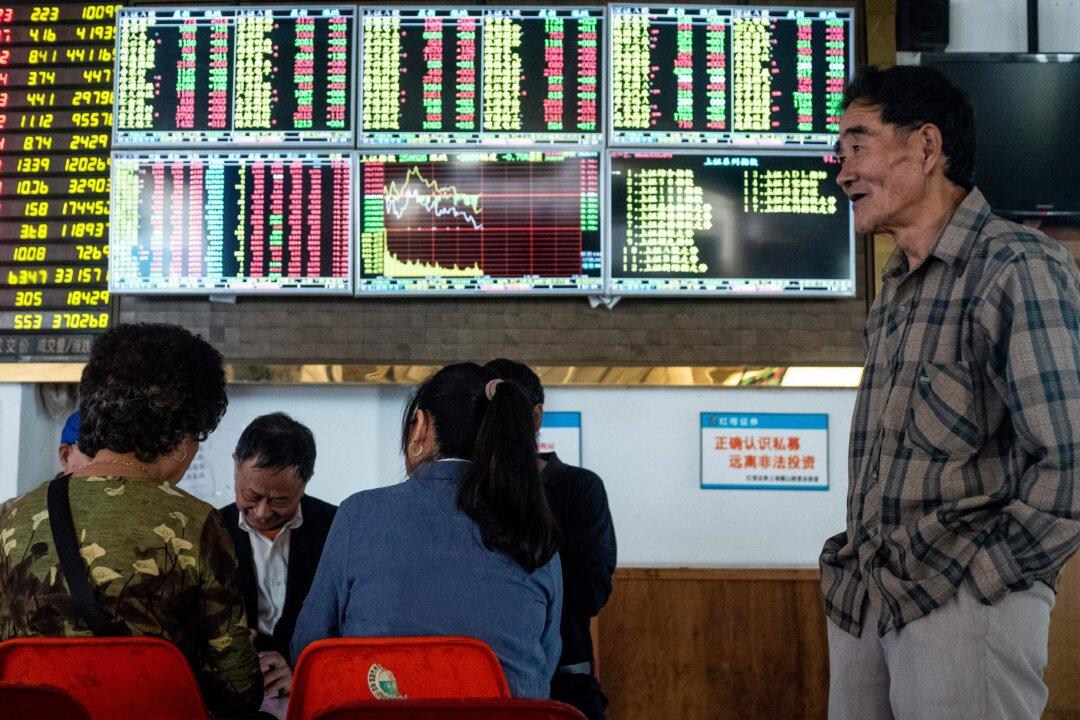The Chinese stock market is in trouble. The Shanghai Stock Exchange Composite Index fell 24.59 percent in 2018—the biggest annual drop since 2008. This makes the Shanghai exchange the world’s worst performing stock market.
The Shenzhen exchange did not fare well either, dropping 34.42 percent. Meanwhile, the Growth Enterprise Market (GEM) Index in Hong Kong fell 28.65 percent.





